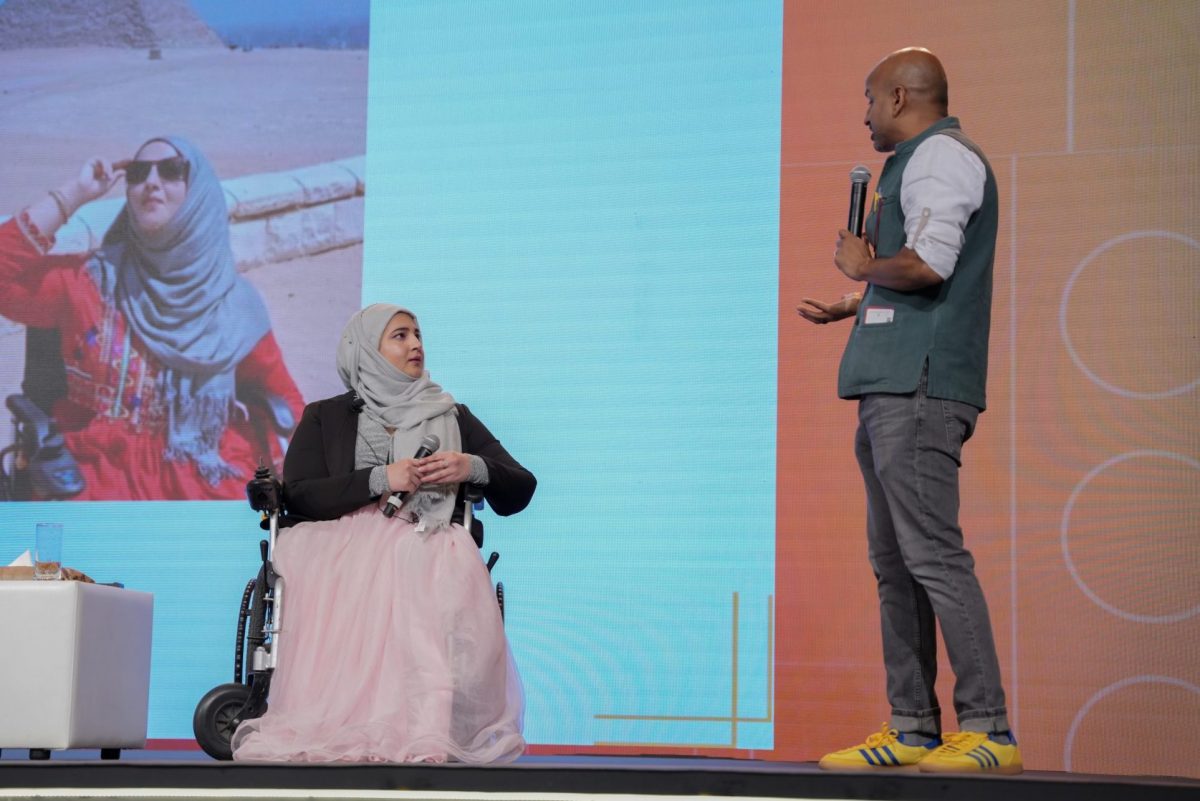Skift Take
Travelers with disabilities face far greater challenges than the travel industry allows for, with disability rights activist Tanzila Khan calling for more communication, empathy, and fairness in pricing for this one billion-strong travel segment.
The journey towards accessibility in travel starts with talking about non-access.
This is according to disability rights activist Tanzila Khan who shared her perspective at the inaugural Skift Global Forum East on Wednesday in Dubai.
The World Health Organization estimates 1.3 billion people — or 16 percent of the global population — experience a significant disability today. This number is growing because of an increase in noncommunicable diseases and people living longer.
For Khan, the key to addressing this travel segment’s challenges is to communicate and talk about disability because the opportunities to make a difference are significant.
Khan said industry leaders must make an effort to remove what she described as the “disability tax” when defining the future of travel.
Citing an example of a trip to Egypt with her two friends who also use wheelchairs, they were forced to upgrade and pay for an accessible room, which could accommodate them.
Empathy and Communication Are Essential Tools
“If we were able-bodied women, we would’ve taken a regular room. The difference, I like to call it the disability tax, and we as leaders must mitigate that into the future that we’re stepping in because we end up spending much more than what a non-disabled regular person would pay for a service,” Khan said.
She further added that empathy and communication were essential tools in shaping a service or offering for travelers with disabilities.
Khan mentioned various aspects of the travel planning process through to the actual journey. Visa applications are already so cumbersome for enable-bodied, as Khan challenged the audience to consider what it must be like for others like her.
A work trip she took in 2017 to Ras Al Khaimah, a destination renowned for its nature, leisure, and adventure, drove home community and empathy for her.
She decided to go to the beach during a break, but it was a significant challenge.
It was only with the help of about seven people that she was able to do it.
“That beach was not at all accessible to me because of the sand. But here, there were people who were carrying me, dragging me, pushing me, making that happen for me. And then one of them took the picture. Of course, we had to document all our effort, and then they all brought me back. And then one of them started washing my wheels.”
Khan explained that it was only because of this sense of community that she could do it.
Where the system does not cater for disability, the community steps in, she said, adding that it presented an untapped opportunity as this type of traveler often feels like a burden or, worse yet, a ghost as they are unseen.
The potential and power for it to make a difference should never be underestimated, said Khan.
The Daily Newsletter
Our daily coverage of the global travel industry. Written by editors and analysts from across Skift’s brands.
Have a confidential tip for Skift? Get in touch
Tags: accessible travel, dubai, sgfe2022, skift live, tourism, Travel Experiences
Photo credit: Disability activist Tanzila Khan and Skift CEO Rafat Ali on stage at Skift Global Forum East in Dubai. Skift
